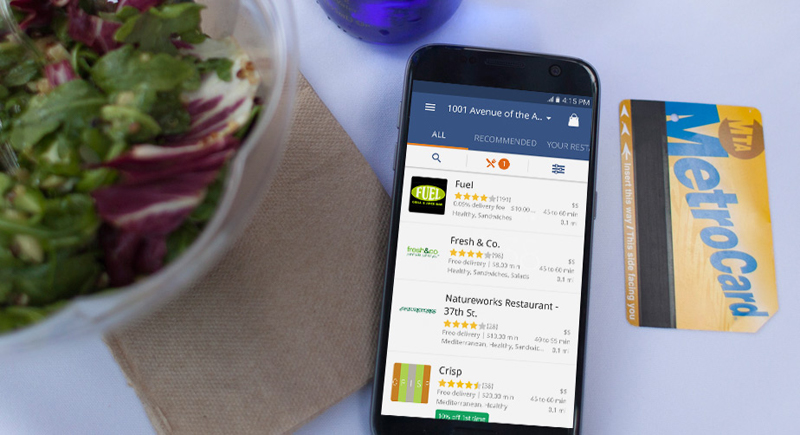After acquiring Mr. Delivery earlier this summer, Delivery.com sees this as the start of a metamorphosis that will result in the New York-based marketplace becoming a much larger player in the restaurant delivery world before diving deeper into alcohol, grocery and laundry-related delivery services. Part of its playbook includes “effectively syndicating” its merchant menus to other platforms, like Yelp, which is one of its launch partners.
“If we can bring our capabilities, our tools and technologies to bear for these multiple market operators, market operators can in turn provide what they do best, which is building relationships and nurturing relationships with local merchants [and] building those relationships with a local driver network,” said CEO Jed Kleckner. “Those two things put together can be a potent combination, and that’s what we believe this is the beginning of.”
Before being brought under the Delivery.com umbrella, Mr. Delivery was one of those “demand end points” that the company uses to bring more volume to its restaurant partners. On the supply side, diversifying beyond food will happen after the dust settles following the acquisition.
Aside from bringing volume to restaurants, the company’s strategy has shifted to bringing its technology infrastructure to what Kleckner said were “hundreds to thousands” of similar locally based providers like Mr. Delivery.
“What you’re seeing now is the beginning of a big transformative period, and it’s funny, in New York this has been going on for nearly 20 years,” Kleckner said. “We’ve really stayed true to being a marketplace operator, a two-sided business—supply and demand—aggregating the demand side of the business and aggregating the supply side of the business.”
The CEO said just as books were the “anchor tenant” for Amazon’s business plan, his company has “other floors to fill” that can include not just products like vodka and cereal, but also services like laundry and others that are being planned internally.
With an in-house center that can dispatch drivers from outside courier networks, Delivery.com does not employ its own drivers. Kleckner called his own business plan “more financially efficient” compared to other strategies of building scale in the U.S. delivery ecosystem.
Delivering alcohol to at-home consumers won’t be as easy as Big Macs in a bag, however, because of the patchwork of alcohol regulations across state lines. While that may not work in some states, delivered services like dry cleaning wouldn’t face any such hurdles as the company builds out its consumer offerings.
Some of Mr. Delivery’s operators are franchisees, therefore, the newly combined entity will have its own patchwork of differences inside its own four walls. Kleckner positioned that as a strength where local operators presumably have the best relationships with the restaurants and service providers within their territories. He likened the different models to McDonald’s and other franchises that have both company- and franchisee-owned locations.
Justin Thompson, a Mr. Delivery market operator in Bloomington, Indiana, has had his eye on alcohol and grocery delivery for years. Looking ahead, he hopes the new arrangement with Delivery.com can help him “scale vertically” into new categories that he believes can transform his business. He’s previously innovated within his own turf, including stocking and selling his own soft drinks to delivery customers, which has provided a nice, albeit small, boost to the bottom line.
Asked about the rise of much larger, national delivery providers, Thompson said, “I wouldn’t say that I’m mad, but I’d definitely say I’m concerned.” He frequently reminds himself that size and seemingly limitless financial backing comes with its own limitations for those national providers “in terms of how quickly they’re able to pivot and move.”
His restaurant partners choose to work with him, a much smaller player, because of their face-to-face relationships and the ease of providing customer service in person.
“That is, by far, the biggest benefit we offer these restaurants, a higher quality service with more prompt feedback and service,” he added.
Looking further ahead, Thompson said he’s primed to bring corporate catering options to his merchants, which he sees as having numerous benefits, including bringing new end users into the fold.
“I’m extremely excited and grateful for the opportunity to be able to own a franchise with such a large, prominent company in the industry,” he said. “I am thrilled by this opportunity, and I think that Delivery.com considered this greatly before getting into this deal.”


